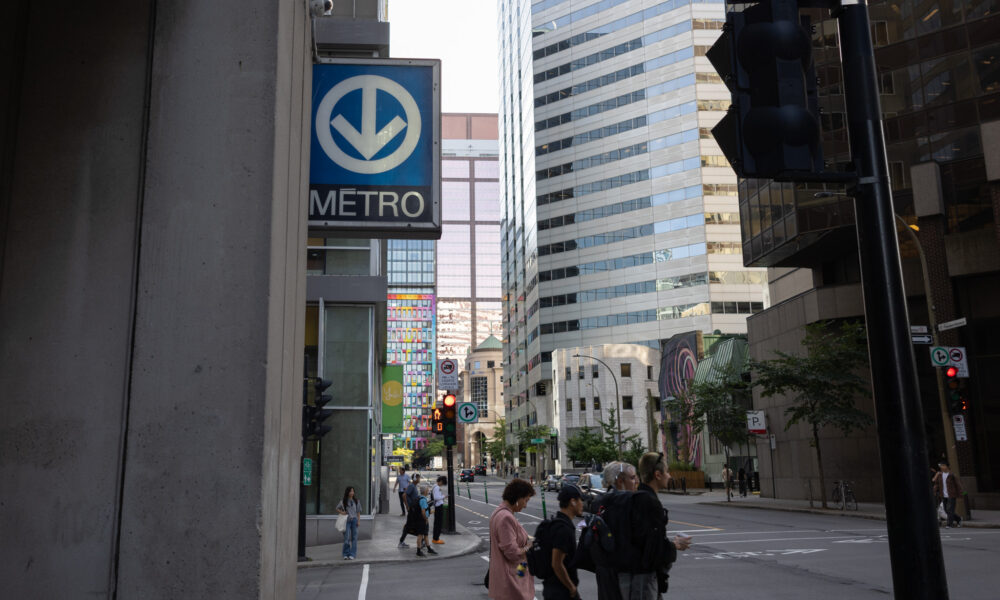The Société de transport de Montréal (STM) has announced a workers’ strike starting on Sept. 22. During the strike, city buses and the metro will be running on restricted schedules Mondays, Wednesdays, and Fridays until either Oct. 5, or when the STM and the Syndicat du transport de Montréal—a union that is part of the Confédération des syndicats nationaux labour federation—come to an agreement. While STM paratransit will remain unrestricted, school service buses will experience reduced service times during the strike.
During the strike days of restriction, buses will be available from 6:15-9:15 a.m., and 3:00-6:00 p.m. The night bus service will remain unchanged, going from 11:15 p.m.-1:15 a.m. All buses will finish their routes in their entirety once they have begun.
The metro will function on a similar schedule, remaining open from 6:30-9:30 a.m. and 2:45-5:40 p.m. The night service will last from 11:00 p.m. through the usual closing time of approximately 1:00 a.m. The STM will close stations’ doors as soon as the last train passes through each stop.
In an interview with The Tribune, Sarah Moser, associate professor of McGill’s Department of Geography and associate member of the School of Urban Planning, pointed out that a lack of provincial assistance to Montreal’s transportation system has been a recurring issue.
“The STM is being starved of funding from the province, so tension like this will likely occur more regularly in the future,” Moser said.
31 out of 68 STM stations are considered by the STM itself to be in poor or very poor condition. Stations Saint-Michel, Peel, and Champ-de-Mars—among others—have experienced significant physical deterioration that could eventually pose safety risks. Despite these concerns, the Quebec government’s 2025-2026 budget plan announced a $258 million CAD cut to the STM’s funding over the next three years. Éric Alan Caldwell, president of the Board of Directors of the STM and city councillor of the Mercier-Hochelaga-Maisonneuve borough, pointed out at a press conference on March 26 that the STM will require more funding to provide reliable and safe transportation services to its everyday commuters.
Moser also explained that this STM strike has been caused by a history of numerous unsuccessful negotiations between the STM and the Syndicat du transport de Montréal.
“To get to the stage where workers are striking, there have been failed attempts to address the problems,” Moser said. “The upcoming STM strike stems from frustration over the practice of hiring outside contractors, who are not unionized, rather than using unionized employees. The employer is either unable or unwilling to address these problems, so the union may feel they have no other choice but to strike.”
The upcoming 14-day strike will be the STM’s second strike of the year—with the union also striking in June 2025. This previous strike coincided with Montreal’s Canadian Grand Prix 2025, which saw a record of 352,000 spectators heading to Île Notre-Dame over three days to attend the event. In order to handle the resulting transit usage surge across the Grand Prix weekend, Quebec’s Tribunal administratif du travail mandated a pause to the strike, forcing the STM to resume full service from Friday, June 13 to Sunday, June 15.
Moser explained that while alternative transportation options to the STM exist, vulnerable and marginalized groups in Montreal who rely on metro and bus services may be most heavily affected by the upcoming strike.
“Many people like myself take the STM to work, but if there are delays resulting from the strike, I can also ride my bike or take a taxi if I need to,” Moser stated. “However, many people are unable to ride a bike, don’t own a car, and can’t afford a taxi, so they are particularly vulnerable. If I am late for work, it’s not the end of the world, but for many employees, being late could mean getting fired or have other serious consequences.”
Lince Ketchate, U3 Science, stated in an interview with The Tribune that an STM strike would greatly impact his route to school due to the timing of his classes.
“My commute would be mostly affected in the afternoon, because I finish classes when it’s not peak hours, so there would not be service,” Ketchate explained.
He added that this disruption will be particularly difficult in comparison to the last STM strike in June, when he was able to ride a Bixi without having to manage his school supplies.
“I don’t have a Bixi pass, so I have to pay a lot for every trip, and I had to bike for 50 minutes, so it’s really exhausting,” Ketchate said. “And especially now that I have my backpack with me and I have my books, […] everything’s going to be heavy.”
In a written statement to The Tribune, Dymetri Taylor, President of the Students’ Society of McGill University (SSMU), maintained that the union will continue to accommodate students’ needs during the strike.
“The SSMU’s services will remain available during the strike,” Taylor wrote.
One of these services, DriveSafe, is a student-run volunteer platform that will transport students to destinations anywhere on the island of Montreal from Thursday to Saturday between 11:00 p.m. and 3:00 a.m. In a written statement to The Tribune, DriveSafe explained that they are in the process of finding additional solutions to support students affected by the strike.
“We anticipate no impact to our regular operations, [but] we are currently exploring options to potentially offer a shuttle service of some kind during the day when all STM services are suspended,” DriveSafe wrote. “We would like to remind students that we are an entirely volunteer run and operated service, and thus are limited in how many rides we are able to provide during our service hours.”
DriveSafe also provided recommendations for how best to access their resources in high-demand times, such as during a transit strike.
“Wait times can get fairly long during busy periods, so the earlier [one calls,] the more likely [one will be] able to get a ride before the end of our service hours,” DriveSafe wrote. “Any updates regarding this matter will be made to our Instagram profile, @ssmudrivesafe.”
Ketchate noted that while he could delay his commute until peak hour STM services resume during the strike, he remains apprehensive about having to wait extensively for strained transportation services, thus missing out on time that could be spent completing schoolwork or participating in clubs.
“The other option is just to stay on campus until the service resumes, so I [would] have to be here for four hours, but I don’t have anything to do for four hours,” Ketchate stated. “Especially now that [since] things are starting up, I’m going to get more assignments, […] [the strike is] a really big inconvenience.”
Ketchate concluded by suggesting that it would be helpful if McGill could arrange alternative transportation options or opportunities for remote learning for students throughout the duration of the STM strike.
“I don’t know if it’d be possible for [McGill] to offer some kind of bus service,” Ketchate said. “From campus, to maybe a central metro station […] or [look into offering] classes online.”
McGill’s Media Relations Office (MRO) declined to comment on the strike and whether the university will make any efforts to accommodate its affected students.









